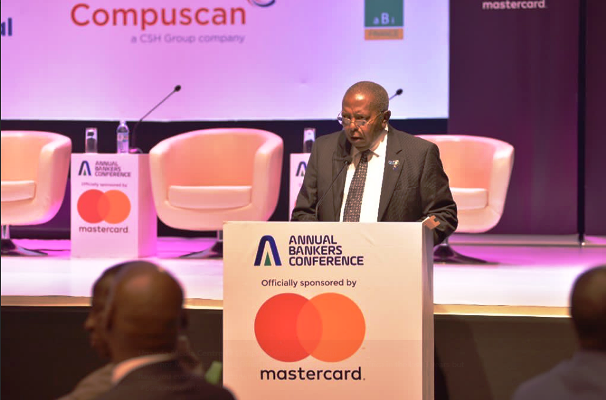Bank of Uganda (BoU) Governor, Prof. Emmanuel Tumusiime-Mutebile has revealed fresh details about the controversial takeover of Crane Bank by the Central Bank and its eventual acquisition by dfcu Bank.
Mutebile said BoU had no option other than taking over crane bank
He made the remarks this morning at the Uganda Bankers’ Association Annual Bankers’ Conference at the Kampala Serena Hotel.
The theme of the conference was Financial Sector Stability: Managing Risk in a Fast Growing and Fast Changing Environment.
The Governor in his speech emphasized that while it is not possible for regulators to guarantee that no bank will ever fail, because that would require the elimination of risk-taking by banks – which would in turn hinder the very purpose of financial intermediation,– regulators can ensure that bank failures are the exception rather than the norm.
He explained the central bank’s intervention in Crane Bank saying;
“After the BoU had intervened in Crane Bank and taken it over in October 2016, an inventory of its assets and liabilities was commissioned and carried out by a reputable accounting firm. This inventory found that Crane Bank was massively insolvent, with core capital of negative Shs240 billion, as a result of mismanagement and fraud. The notion that this bank could have been rehabilitated by its owners – the same people who were responsible for its failure – if only the BoU had provided more liquidity support and allowed the owners to remain in control, is not tenable. In reality the BoU had no other options, if it wished to minimise the losses incurred by the bank and protect the interests of its depositors, other than to take over Crane Bank and resolve it.”
He added that in order to protect the interests of a distressed bank’s depositors, the regulator has a responsibility to intervene promptly in a bank that is severely undercapitalised or insolvent, and, if necessary, to take over the bank and resolve it.
“The BoU has no obligation to bail out a distressed bank by providing it with liquidity support, in the hope that it will somehow be restored to financial health. Such an option would be extremely dangerous. It would allow the distressed bank to continue being mismanaged in the same manner that caused it to become distressed, thereby incurring further losses at the taxpayers’ expense. It would also send a signal to all participants in the financial markets that mismanagement carries no consequences for the owners and managers of banks,” he added.
He explained that in resolving a failed bank, the Financial Institutions Act provides for several resolution modalities; for example, the failed bank can be sold as a going concern, it can be merged with another financial institution, it can be subject to a purchase of assets and assumption of liabilities transaction (P&A) or put into liquidation.
In practise, he said, the options are usually more limited.
He added that most of the banks, which have failed in Uganda during the last 20 years, either had very little franchise value or were too heavily insolvent to be sold on a going concern basis or merged with another bank. Hence in these cases, the feasible options were a P&A or a simple liquidation, he said.
He noted that A P&A has the advantage of transferring a substantial part of the failed bank’s business, including all or most of its deposits and parts of its loan book, to one or more acquiring banks; thereby minimising the disruption to the failed bank’s customers.
“This is why the BoU has used the P&A modality on several occasions over the last two decades in resolving failed banks, as was the case with the resolution of Crane Bank,” he said.
He revealed that two factors are crucial in determining how a P&A transaction is carried out, and in the selection by the regulator of feasible partners, to acquire the assets and assume the liabilities of a failed bank. First, an acquiring bank must have the resources – financial, managerial, and infrastructural – to absorb the assets and liabilities of the failed bank quickly and smoothly so as to avoid disruptions to its customers.
“For example, a bank, which has branches only in Kampala cannot absorb the assets and liabilities, and serve the customers of a failed bank, which had a nationwide branch network,” he said.
Second, a P&A must be organised and implemented quickly, so that a failed bank’s customers do not face a long wait to access services or to ensure that the regulator does not have to manage the failed bank on a statutory basis for an extended period.
“I believe that a balanced and fair evaluation of the BoU’s record of intervention in, and resolution of, failed banks would conclude that these interventions and resolutions have been successful in achieving the primary policy objectives of prudential regulation; to protect the interests of depositors, and to ensure the stability of the financial system,” he said, adding that since 2010, the BoU has intervened in five banks; closing three of them, and taking two others into temporary statutory management. In none of these banks did depositors lose their money, nor was there any danger caused to the stability of the financial system. The intervention in Crane Bank, was the most difficult of these interventions and the one which was potentially the most problematic, because it was a large bank of systemic importance, and because of the huge magnitude of the losses it had incurred.
“Nevertheless, the BoU was able to resolve Crane Bank smoothly. It remained open under statutory management until most of its assets and liabilities could be transferred through a P&A to a suitable acquiring bank, DFCU Bank, thereby avoiding disruption to its customers.
None of its depositors lost the money. Furthermore, despite the size of the bank and its links with other banks through the interbank market, there was no contagion to the rest of the financial system and no loss of public confidence in bank deposits,” he said.






